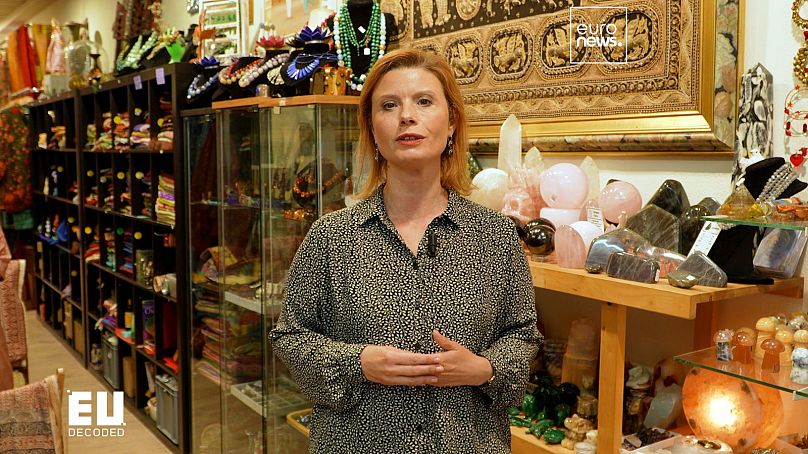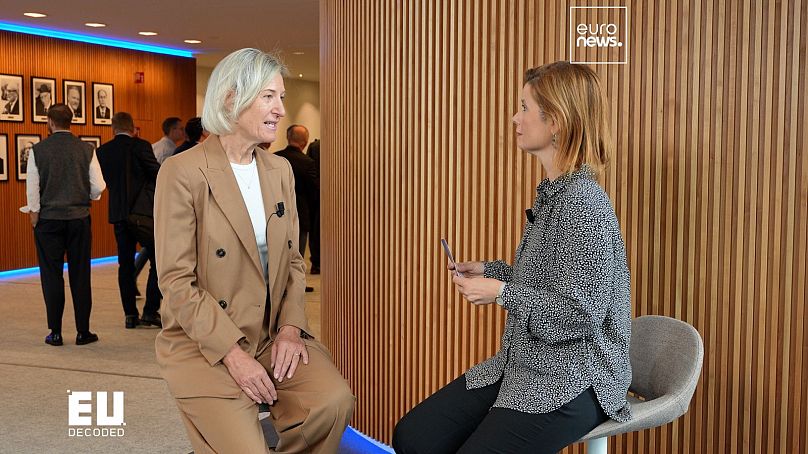The European Commission has proposed a new EU-India Strategic Agenda, for the bloc to develop ties in trade and security with the world's most populous democracy. However, India's enduring alliance with Russia remains a source of disagreement between the two sides.
With bilateral trade in goods worth €120 billion, the EU is India's largest trading partner. There are 6,000 European companies operating in India and to boost that relation, The European Commission would like to conclude a Free Trade Agreement by the end of the year, that could significantly reduce tariffs and other barriers.
 ADVERTISEMENT
ADVERTISEMENT
 ADVERTISEMENT
ADVERTISEMENT
After the blow to its trade relations with the US, following the imposition of an average tariff rate of 15%, the EU is trying to speed up agreements with other regions.
"There is a very complicated geopolitical situation so the EU is now looking at India, which is the world's most populous country. It's a rising economic superpower, and it's a major actor in the so-called Global South. So it fits the credentials for a new partnership to navigate together in geopolitical turmoil," said Jorge Liboreiro, who covers EU-India relations for Euronews.
Even so, the EU's foreign policy chief, Kaja Kallas, warned that India's historical military and economic ties with Russia need to be assessed. New Delhi purchases large quantities of weapons and oil from Moscow, helping Russia fuel its war economy and aggression against Ukraine.
"We know that India and Russia have a long-standing relationship, and I don't think they can simply cut ties overnight," said Angelika Niebler (Germany/EPP), chair of the Delegation for Relations with India at the European Parliament.
The lawmaker considers that the EU has to do a pros and cons exercise through dialogue: "I think it's important for the EU to engage, to express our concerns, but also try to understand their perspective and interests. Of course, after we have to defend our own interests," she added.
Pragmatism rules
In view of the ongoing geopolitical realignment, another central pillar to be developed is the EU-India Security and Defence Partnership. India's defence budget for 2025-2026 is €69 billion and its traditional supplier is Russia, which accounts for 36% of its purchases.
However, India has been buying more from the West, particularly the US, Israel, the UK, France, and Germany. With ties with the US deteriorating, India sees the EU as a potential new focal point.
Military supply deals have been signed with two key member states in 2025: France has sold 26 Rafale Marine fighter jets, valued at €7 billion, and Germany will build six Type 214 submarines with Indian partners, valued at €5 billion.
"Right now, India's relations with the United States are at rock bottom, Donald Trump is doing whatever he can to alienate New Delhi: 50% tariffs, a new approach towards Pakistan. So India thinks that the European Union could be the biggest partner in the West," said Jorge Liboreiro.
But should the EU see India as a reliable ally when Prime Minister Narendra Modi appears to be moving closer to China, historically a rival? The EU accuses China of industrial overproduction, export restrictions, and criticises its support for Russia's war against Ukraine.
MEP Niebler doesn't see India's closeness to China as an impediment: "Let's focus on our policy. I don't want to blame others for doing this or that."
"We must take a pragmatic and realistic approach, always focusing on what's in our interests, on what strengthens the European Union," she told Euronews.
The European Commission wants the diplomatic efforts to work towards an EU-India summit in early 2026.
Watch the video here!












